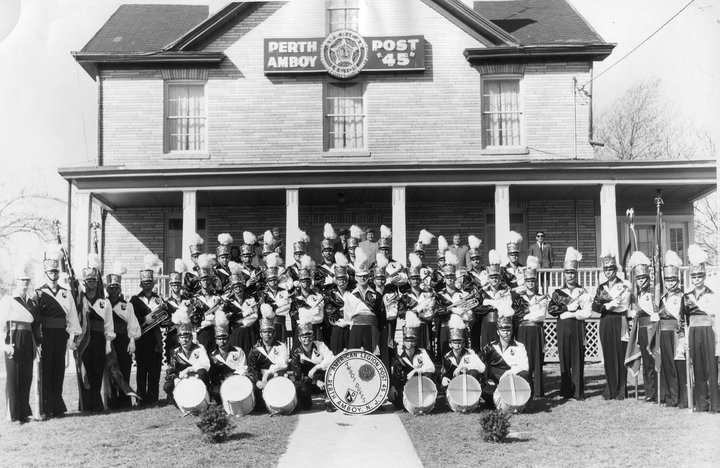
Posted on 11/29/2014 12:04:54 PM PST by Coleus

The DEP also granted the request of the company to more than double the amount of oil it can transfer annually at its wharf to almost 1.8 billion gallons, state officials confirmed. The state’s approval means there could be 330 more oil trains on New Jersey’s freight lines each year — on top of the trains that already carry as much as 5 billion gallons of volatile crude from North Dakota into the state annually. But while that further solidifies New Jersey’s emergence as a major transportation corridor for fossil fuels, it raises more concerns among firefighters, emergency management officials and environmentalists that a derailment could lead to disaster.
The decision was made without the opportunity for the public to comment – the DEP said the 603-page permit was a “minor modification” that required no public participation. However, a similar permit request by another oil company in Albany, N.Y., has led to a public hearing and a review of safety procedures by New York regulators. It has generated such an intense debate over whether to allow large amounts of heavy crude into the state that New York officials are reevaluating the issue.
The enormous increase in shipments of oil by rail and barge in recent years has raised both safety and environmental concerns across the nation. The crude from tar sands is extremely heavy and can sink in water. It is very difficult to remove if spilled. Crude from the Bakken region of North Dakota carries its own concerns because it is highly flammable.
There have been no incidents with the oil shipments in New Jersey, though there have been fiery derailments elsewhere involving Bakken crude, including one that killed 43 people in Quebec. One of the worst onshore oil spills in U.S. history involved Canadian tar sands oil when a pipeline ruptured in 2010. A day after the DEP approved the permit, Buckeye Chairman and CEO Clark Smith told analysts in an earnings call that the Perth Amboy facility was poised to handle “a heavier crude oil slate, and possibly export Canadian-sourced crude oil.”
Smith and other executives at the Houston-based Buckeye did not return phone calls seeking comment. A spokesman for the DEP said the agency’s focus is on regulating only the plant and not the environmental risks associated with transporting hazardous materials like oil through the state. DEP officials say they lack the power to regulate beyond Buckeye’s property. “Our authority begins and ends at the fence line,” said Larry Hajna, an agency spokesman. “We regulate emissions and have requirements for how materials are handled, stored or discharged, but we cannot limit how much is processed or how much is transported.”
The regulation of railroads and their cargo falls almost entirely with the federal government’s purview. Still, the DEP can indirectly limit the amount of oil at a facility by capping the amount of emissions the facility can put into the air, environmentalists said. “They’re either not paying attention to the consequences of this, or they are and they just don’t care about public safety,” said Debbie Mans, director of NY/NJ Baykeeper, which looks to restore Raritan Bay, which the plant is near.
The rail industry says 99 percent of trains reach their destination without incident. Oil spills in water have decreased since the 1989 Exxon Valdez spill that spurred reforms to require double hulls on all oil tankers at U.S. ports. “Canadian heavy crude and our own domestic production has reawakened some of New Jersey’s primary roles in the distribution and manufacturing of oil products,” said James E. Benton, executive director of the New Jersey Petroleum Institute. “We’re seeing a historic turning point.”
Still, the increase in the amount of oil coming through the state raises concerns for people like Rick Engler, director of the New Jersey Work Environment Council, a coalition of labor and environmental groups. “It’s an incredible expansion of crude oil transportation in our state and poses new risks for railroad workers, firefighters and all the communities this travels through,” he said. “We need to do everything possible to prevent the dangers that come along with it.”
It is unclear what trains would bring tar sands oil into New Jersey, since the Christie administration has refused to make detailed information on the rail lines public, unlike officials in several other states. Both CSX and Norfolk Southern trains service the area where the Buckeye oil terminal is located. A CSX spokesman would not comment on whether Buckeye is a customer; however, a map on the company’s website shows the railway connecting to the Buckeye terminal in Perth Amboy.
CSX already hauls 15 to 30 trains, each carrying 1 million to 3 million gallons of Bakken crude, from Albany into New Jersey every week, passing by thousands of homes and businesses in 11 Bergen County towns and other parts of the state on its way to a refinery in Philadelphia.
Buckeye, a publicly traded oil distribution company with more than 100 terminals in the U.S., bought the 250-acre Perth Amboy facility in 2012 for $260 million from Chevron. It spent two years and $200 million to refurbish and expand the aging facility, drawing praise from local officials who said it would boost the local economy and tax base. Construction was completed in past few months, and company executives said the plant would emerge as “one of the premiere marine terminals” in the nation.
While the DEP’s air permit doesn’t specifically mention Canadian tar sands oil, it allows Buckeye Partners to heat large volumes of heavy crude, a necessary step in transferring the thick, sticky tar sands oil from trains onto barges and ships bound for refineries. It allows Buckeye to use air pollution control devices to limit the amount of airborne toxic chemicals generated during heating. Several terminals throughout the state have similar permits for warming up thick heating oil for transfer, DEP officials said.
Even before the permit was approved, Buckeye executives began publicly discussing bringing heavy Canadian crude oil to Perth Amboy in earnings calls this year. “We’re still working on our long-term plan and with regards to breaking into having Canadian barrel for export, and we’re still actively engaging in discussions around that,” Khalid Muslih, a Buckeye senior vice president, said during the Nov. 7 call. Tar sands oil presents a significant environmental danger if large volumes are spilled. In Michigan, a pipeline ruptured in 2010, spilling more than 843,000 gallons of tar sands oil into the Kalamazoo River. Even with a three-year cleanup that has surpassed $1 billion, the Environmental Protection Agency estimates that upward of 168,000 gallons cannot be recovered.
Tar sands oil has been at the heart of the debate over whether to build the Keystone XL pipeline, which came to a head last week when the Democratic-controlled Senate rejected legislation to complete the project. The project would move oil from Canada to the Gulf Coast, which supporters say would create jobs and ease American dependence on Middle East oil. Critics argue that the risk of a pipeline spill is too great, and they say much of the Canadian crude would be exported. The New Jersey DEP’s approval is in stark contrast to what is happening in New York.
New York officials were going to allow Canadian tar sands oil to be hauled into the state by approving an air permit for Global Partners, a Massachusetts energy company, to heat heavy crude oil from trains to barges on the Hudson. That generated a large amount of criticism from environmental groups and local officials along the recovering waterway, who fear a large spill of heavy crude could undo years of cleanup efforts. In response, New York is reevaluating the permit, has held at least one public hearing, has solicited public comments regarding the permit and has even created a Web page dedicated to the issue.
The DEP said that no public outreach was necessary while evaluating Buckeye’s permit application. “This was reviewed as a minor modification and there was no public hearing or outreach,” Hajna, the DEP spokesman, said in an email. “This is consistent with all rules, policies and procedures.” Environmentalists say the DEP is being shortsighted and should take into account the environmental risk beyond the plant’s gates. “For all their faults, New York is at least saying this is a really big deal and we’re going to look into this,” said Mans, of NY/NJ Baykeeper. “You’re essentially moving these trains to one of the most densely populated areas of the country, and you’re not telling people. That’s wrong.”
It’s a twofer for the environmentalists — no Keystone pipeline, and using trains to transport oil makes it harder to transport coal.

(Posted by a BAC)
So THAT’S the Amboy Dukes!
Go ask Warren Buffett who profits most from oil trains...
The way the media writes about coal sands oil is like its cyanide, its still only oil for for Christ sakes.
Northern NJ has the best city names: Perth, Amboy and my all-time favorite, Mahwah.
That via Jefferson Aiplane.
Anything to attack our economy and free enterprise.
I’m guessing early or mid 60’s
When I looked it up, I saw nearby is Ho-Ho-Kus.
The “Properties” when you click it has 1962 in it.
Military Bearing was 1/5 of your score ...
siiigghhh
Buffett invests heavily in railroad stocks. Buffett throws his support to Obama in the 2012 election. Obama refuses the Keystone Pipeline. Oil goes by rail instead.
Nope, nothing worth investigating there.
Warren Buffet will be so happy.
What could possibly go wrong?
Definitely don't want to have it contained in an underground pipeline. That would poison the environment.
Maybe if they had only immigrant ebola patients working on the Keystone pipeline, that would make Obama happy.
Don’t forget - “Which way ? PISCATAWAY!”
And all the little presstitutes have the foolaide drinking sheeple thinking this is safer transport than a pipeline!

Disclaimer: Opinions posted on Free Republic are those of the individual posters and do not necessarily represent the opinion of Free Republic or its management. All materials posted herein are protected by copyright law and the exemption for fair use of copyrighted works.